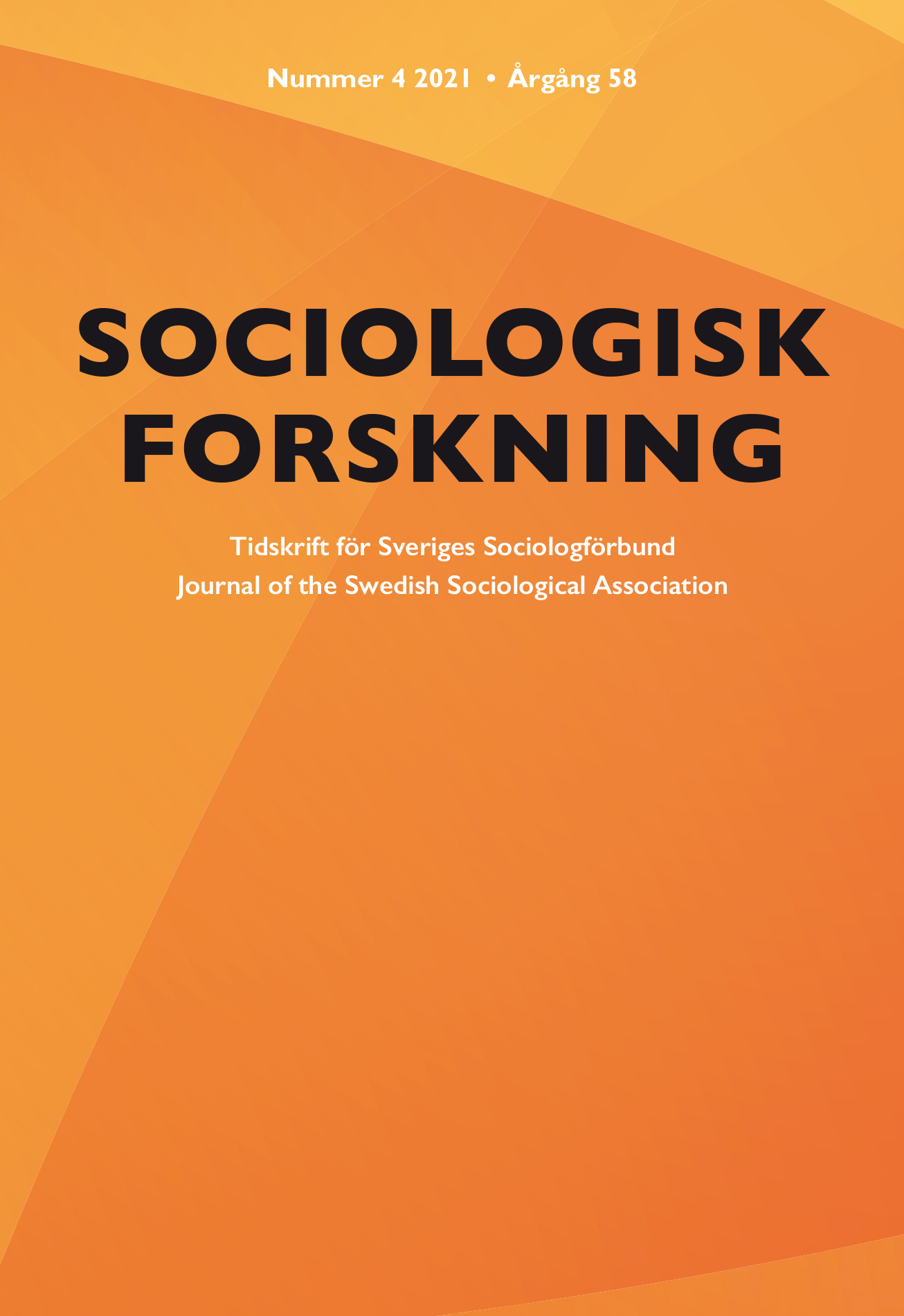Social relations and challenges to consuming less in a mass consumption society
DOI:
https://doi.org/10.37062/sf.58.22818Nyckelord:
sustainable consumption, lifestyle, downsizing, reduced consumption, transformationAbstract
Increasing numbers of people in welfare societies express worries about their ecological footprint. Some make efforts to significantly reduce their consumption. Because people have been socialized into a society of mass/excess consumption, there are great challenges. How can someone learn to downsize when society incessantly compels her to continue with mass consumption habits? This article demonstrates, theoretically and empirically, how social relations, within a societal context of mass consumption, shape the conditions for transforming lifestyles to reduce consumption. It contributes to sociology as well as a growing interdisciplinary literature on reduced consumption by focusing specifically on challenges related to social relations. The study uses a qualitative approach and an interview study of 24 people in Sweden making significant efforts to reduce their consumption. Findings – both perceived challenges and creative ways of coping with them – are related to four analytical themes: (1) the intersection of everyday rituals and consumption; (2) the norms and normality of mass consumption; (3) social comparison and status consumption; and (4) social and community support for reducing consumption.
Downloads
Publicerad
Referera så här
Nummer
Sektion
Licens
Copyright (c) 2022 Författare och tidskrift

Detta verk är licensierat under en Creative Commons Erkännande-Ickekommersiell-IngaBearbetningar 4.0 Internationell-licens.
Allt material i Sociologisk Forskning publiceras med omedelbar öppen tillgång (open access), under Creative Commons-licensen CC BY-NC-ND 4.0.
Allt innehåll i tidskriften är fritt tillgängligt utan kostnad och får för icke-kommersiella syften fritt läsas, laddas ned, kopieras, delas, skrivas ut och länkas. Innehållet får dock inte ändras. När innehållet används måste författare och källa anges. Upphovsrätten till innehållet tillhör respektive författare. Inga publiceringsavgifter tas ut.





